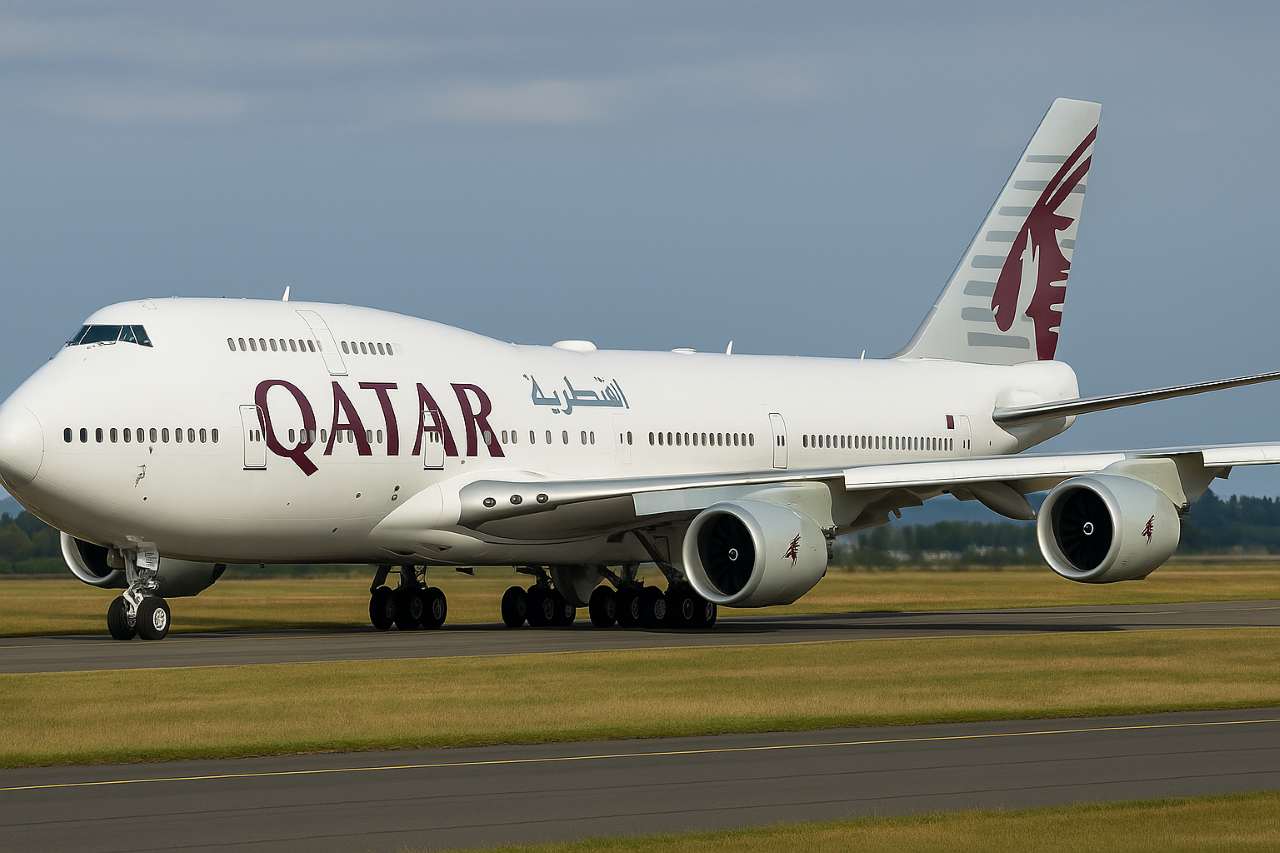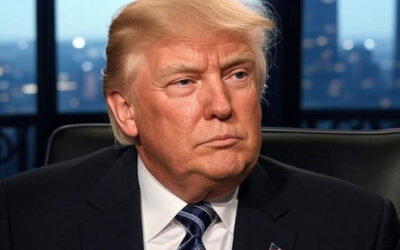Qatari Jet Gift to Trump Raises Ethical Alarms: Why Transparency and Boundaries Matter

By The Henryettan & The Oklahoma Newsleader Editorial Board
Henryetta OK, –In an unprecedented diplomatic gesture, the government of Qatar is reportedly offering a $400 million Boeing 747 luxury jet to the United States for use as a temporary Air Force One during President Donald Trump’s current term. While the arrangement is said to be legal and “without strings attached,” the move has prompted widespread ethical concerns and bipartisan scrutiny on Capitol Hill. It also forces Americans to ask uncomfortable but necessary questions about influence, transparency, and the Constitution.
President Trump, during a recent trip to the Middle East, confirmed that the plane—originally a Qatari-owned aircraft—would be refitted by the Department of Defense for secure presidential travel. Once retired, it is expected to be transferred to his future presidential library. The administration argues that Boeing’s delays in producing new Air Force One jets left a logistical gap, and Qatar stepped in to help, allegedly without any quid pro quo.
Trump described the gift as a generous gesture, even likening the criticism to rejecting a free golf putt. But congressional voices from both parties are alarmed. Senator Rand Paul (R-KY) bluntly stated, “I don’t think it looks good or smells good,” while Rep. Richie Torres (D-NY) suggested the plane would symbolically align U.S. presidential power with Hamas, referencing Qatar’s controversial international relationships.
An Unmistakable Red Flag
From a legal perspective, the White House insists the gift is within statutory bounds. Yet the optics tell a different story. The fact that Attorney General Pam Bondi—formerly a lobbyist for Qatar—is the leading legal voice defending the deal only heightens public skepticism.
There’s also the issue of the Constitution’s Emoluments Clause, which prohibits U.S. officials from accepting gifts or benefits from foreign states without the consent of Congress. Legal scholars remain divided on whether this gift violates the clause, particularly given its intended use by a sitting president and its eventual transfer to a private presidential library.
The Henryettan and The Oklahoma Newsleader take these questions seriously. We acknowledge that foreign nations often engage in diplomacy through symbolic and material gifts. However, this particular gesture—a $400 million aircraft—is not symbolic. It is material, operational, and capable of significantly shaping public perception and foreign policy optics.
Why We Object
We believe there is a crucial distinction between a foreign nation investing in U.S. industry or infrastructure—creating jobs, economic growth, and mutual partnerships—and giving high-value items to our executive branch, even if the asset is technically held by the U.S. military or government.
Our reservations are not partisan. We would raise the same concerns no matter which president accepted such a gift. When foreign governments start donating aircraft to our Department of Defense or Executive Office, it signals a shift from diplomacy to influence peddling.
Moreover, this move could open the door to more such transactions. What stops another foreign power from offering a “temporary gift” next time the U.S. faces delays in defense equipment or infrastructure development? Would this normalize a troubling precedent where foreign generosity serves as a band-aid for domestic shortcomings?
Transparency is Not Enough
While the White House claims the arrangement is transparent, sunlight is not a substitute for scrutiny. It is not enough to simply disclose the gift; we must question why such gifts are needed and whether accepting them undermines democratic principles and national sovereignty.
Accepting a $400 million jet sets a dangerous tone. It sends a message that America’s executive branch is open for donations of military-grade technology from foreign allies—even those with complicated geopolitical footprints. And while the gift may be destined for a presidential library in the future, that only deepens the public’s unease: is this a national asset or a personal legacy?
The Bottom Line
As a free and independent press, it is our duty to challenge assumptions and defend the ethical boundaries of our republic. While this aircraft may legally serve the president and eventually sit in a museum, the implications of the transaction reach far beyond metal and avionics. They touch the very core of how we define independence, loyalty, and the cost of leadership in a globalized world.
We urge our readers—and especially our lawmakers—to think carefully. The next time a nation offers us a “gift,” we should first ask what it may ultimately cost the nation and its integrity.
Support Our Advertisers and Sponsors
You may have missed .....
Copyright © 2025 TheOklahomaNewsLeader.com – All rights reserved.




















